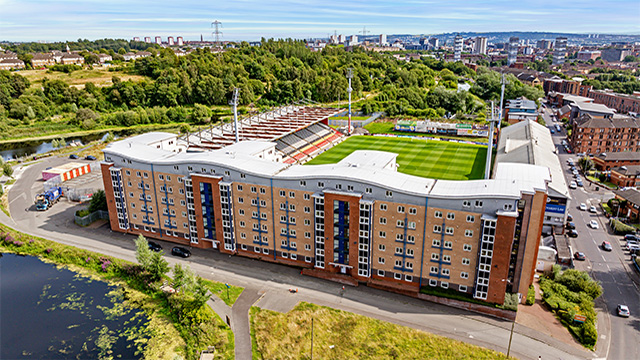London can’t let ‘retrofit first’ become ‘retrofit only’
COMMENT One of the primary challenges facing London this year is how to decarbonise and futureproof its office buildings. This is a crucial part of enabling the capital to achieve its 2030 net zero emissions goal and continue to attract world-leading businesses that will drive innovation and growth.
This a massive challenge. It is particularly acute in the core commercial districts of the City and West End, where almost three-quarters of existing office buildings will need to be upgraded by 2030 to meet sustainability standards.
The continuing polarisation of the office market suggests there is no time to waste. Knight Frank reported in December that office take-up in London was up year-on-year in 2022 and getting close to pre-pandemic levels – but 60% of this was for new or comprehensively refurbished space, which is wellbeing-focused and sustainable.
COMMENT One of the primary challenges facing London this year is how to decarbonise and futureproof its office buildings. This is a crucial part of enabling the capital to achieve its 2030 net zero emissions goal and continue to attract world-leading businesses that will drive innovation and growth.
This a massive challenge. It is particularly acute in the core commercial districts of the City and West End, where almost three-quarters of existing office buildings will need to be upgraded by 2030 to meet sustainability standards.
The continuing polarisation of the office market suggests there is no time to waste. Knight Frank reported in December that office take-up in London was up year-on-year in 2022 and getting close to pre-pandemic levels – but 60% of this was for new or comprehensively refurbished space, which is wellbeing-focused and sustainable.
Missed opportunities
Significant progress is being made to decarbonise and reposition older buildings for modern use, but across the capital projects are stalling as developers and planners debate one fundamental issue that has become increasingly complex and highly politicised: to retrofit or redevelop? Inquiries over the plans for Marks & Spencer’s store on Oxford Street and ITV’s headquarters on the South Bank underline that there is no easy answer.
That is why the London Property Alliance, which represents the capital’s leading developers and property owners, published a study late last year – Retrofit First Not Retrofit Only – examining in detail how we can sensitively adapt and upgrade London’s older building stock and create futureproof, zero-carbon buildings that unlock socio-economic value for local communities and appeal to the next generation of workers.
We fully support retrofit first, but our concern is that a lack of clear and consistent national planning guidance to address this issue will mean that local authorities begin to default to retrofit only.
Just before Christmas, the government published a draft updated National Planning Policy Framework, which could have been an opportunity to provide clear guidance on how commercial property owners and planners should assess the relative merits of retrofit and redevelopment, and establish a framework for decision-making. Sadly, it was an opportunity missed, with the amended guidance largely housing-focused.
The absence of detailed guidance means there is a danger that planning decisions are made by political whim, and that we end up with a de facto ban on redevelopment. This would significantly increase the risk of London and town and city centres across the UK becoming blighted with ‘stranded’ commercial buildings which do not meet today’s sustainability requirements.
Uniform approach
As ever, there is no one-size-fits-all approach, and the delivery of net zero buildings must be approached on a case-by-case basis with careful consideration of an individual building’s characteristics.
Our analysis shows that retrofit is most suitable for buildings of high design quality, with a robust structure and foundations, generous floor-to-ceiling heights and large floor plates. Where buildings do not fit these criteria there must be more support for the blending of the old and the new to maximise environmental and public benefits over the longer term.
Underpinning this must be a uniform approach to assessing whole-life carbon, so that in time we have robust data that shows how different approaches to retrofit and redevelopment impact the environmental performance of a building over its full life cycle.
Charles Begley is chief executive at London Property Alliance











